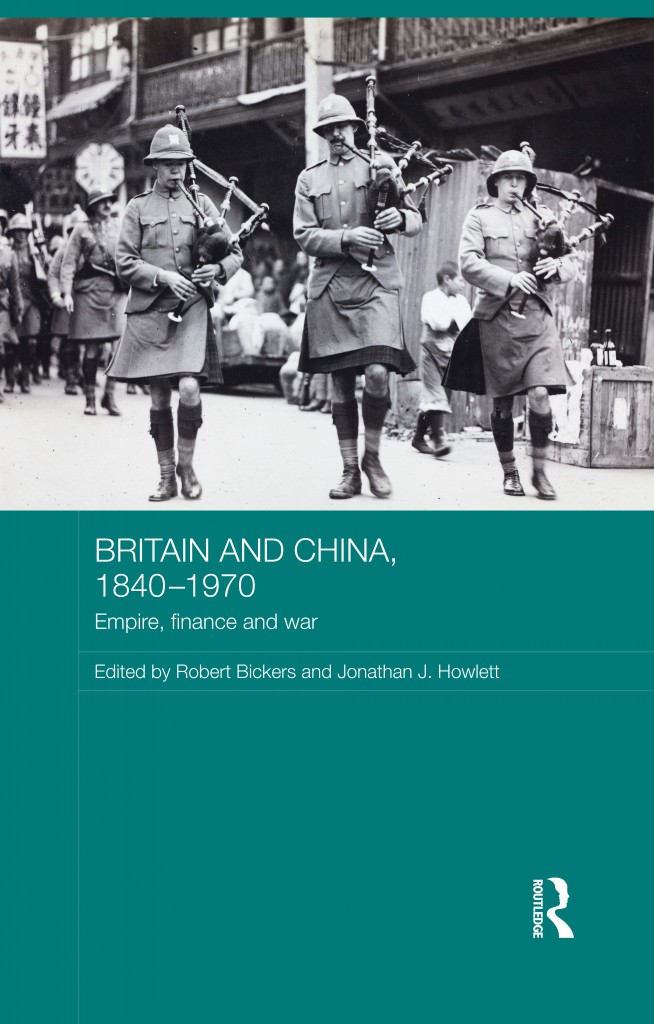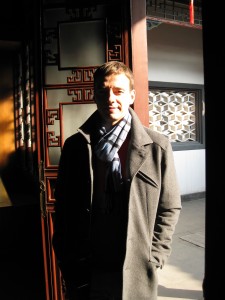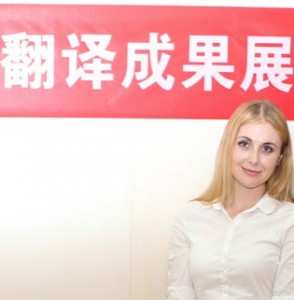 I am a historian of early modern and modern China with a focus on the history of women and gender, and visual/material culture. Funding from the BICC enabled me to pursue DPhil studies at the University of Oxford from 2008-14, where I wrote a dissertation entitled ‘Embroidered Figures: Commercial Production and Popular Culture in the Early Modern Chinese Fashion System’, supervised by Shelagh Vainker, Curator of Chinese Art at the Ashmolean Museum, and Associate Professor of Chinese Art at University of Oxford. The dissertation explored how textile handicraft commercialization and urban popular culture transformed women’s engagement with fashionable dress, enabling women to contribute to local economies and cultures, and was further supported by the KS Scholarship for Chinese Art, and the Gervers Fellowship for Textiles and Dress at the Royal Ontario Museum. Since graduating, I have published articles in Late Imperial China (2015), Costume (2016), and Fashion Theory (2016), and taught as Visiting Assistant Professor in the Department of History of Art and Visual Culture at Rhode Island School of Design from 2015-16.
I am a historian of early modern and modern China with a focus on the history of women and gender, and visual/material culture. Funding from the BICC enabled me to pursue DPhil studies at the University of Oxford from 2008-14, where I wrote a dissertation entitled ‘Embroidered Figures: Commercial Production and Popular Culture in the Early Modern Chinese Fashion System’, supervised by Shelagh Vainker, Curator of Chinese Art at the Ashmolean Museum, and Associate Professor of Chinese Art at University of Oxford. The dissertation explored how textile handicraft commercialization and urban popular culture transformed women’s engagement with fashionable dress, enabling women to contribute to local economies and cultures, and was further supported by the KS Scholarship for Chinese Art, and the Gervers Fellowship for Textiles and Dress at the Royal Ontario Museum. Since graduating, I have published articles in Late Imperial China (2015), Costume (2016), and Fashion Theory (2016), and taught as Visiting Assistant Professor in the Department of History of Art and Visual Culture at Rhode Island School of Design from 2015-16.
For 2016-17, I have been awarded an ACLS / Luce Foundation Postdoctoral Fellowship to develop my dissertation into a book manuscript. I will also visit China to begin a new project which moves into the twentieth century, and examines needlework as a medium of encounter between Chinese and Western women as handicraft workers, missionaries, shop-owners, students and teachers, at a time when long-held notions of gender were uprooted, handicraft industries were revolutionized by industrialization and globalization, and embroidery’s materiality was transformed by new needlework forms introduced by foreign missionaries and merchants. The BICC played a crucial role in providing the financial support, training and academic freedom to develop my research interests in fashion and dress as a mode of cultural and economic creation, and how processes of commercialization, modernization and industrialization in textile handicrafts impact upon women’s experiences in the home, community and society.


 My Ph.D. was completed at the University of Bristol with support from the British Inter-University China Centre’s language based area studies scheme. As such, I was very fortunate to receive a year of language training at Peking University, and further training in reading classical Chinese Buddhist texts with my supervisor, Dr. John Kieschnick, in Bristol. My thesis, entitled ‘Voices of Experience: Modernity and Buddhist Meditation in Republican-era China,’ examines Chinese Buddhism’s response to the intellectual and political reconstructions which took place at the beginning of twentieth century. It looks at the writings of a number of important Buddhist figures from the period, examines the discourse taking place in the then newly emerging Buddhist journals, and compares these findings with current scholarly consensus regarding Buddhism’s adaptation to the modern period. I am currently working on converting this thesis into a monograph, and am preparing a journal article on the prominent reformist monk Shi Yuanying’s presentation of The Awakening of Faith in Mahāyāna. My intention, moreover, is to continue the research developed during my Ph.D., and I am therefore working on a project to investigate the reception of classical Buddhist mediation manuals in Republican era Buddhist journals, and the manner in which Buddhist meditation was secularised and made part of the self-strengthening discourse at this time.
My Ph.D. was completed at the University of Bristol with support from the British Inter-University China Centre’s language based area studies scheme. As such, I was very fortunate to receive a year of language training at Peking University, and further training in reading classical Chinese Buddhist texts with my supervisor, Dr. John Kieschnick, in Bristol. My thesis, entitled ‘Voices of Experience: Modernity and Buddhist Meditation in Republican-era China,’ examines Chinese Buddhism’s response to the intellectual and political reconstructions which took place at the beginning of twentieth century. It looks at the writings of a number of important Buddhist figures from the period, examines the discourse taking place in the then newly emerging Buddhist journals, and compares these findings with current scholarly consensus regarding Buddhism’s adaptation to the modern period. I am currently working on converting this thesis into a monograph, and am preparing a journal article on the prominent reformist monk Shi Yuanying’s presentation of The Awakening of Faith in Mahāyāna. My intention, moreover, is to continue the research developed during my Ph.D., and I am therefore working on a project to investigate the reception of classical Buddhist mediation manuals in Republican era Buddhist journals, and the manner in which Buddhist meditation was secularised and made part of the self-strengthening discourse at this time. I have always had a deep interest in Chinese culture, since as far back as I can remember. This grew to become a strong interest in the country’s language, society, and politics. What the BICC PhD scholarship has given me is an opportunity to develop an academic-based career and a life for myself in China.
I have always had a deep interest in Chinese culture, since as far back as I can remember. This grew to become a strong interest in the country’s language, society, and politics. What the BICC PhD scholarship has given me is an opportunity to develop an academic-based career and a life for myself in China.
